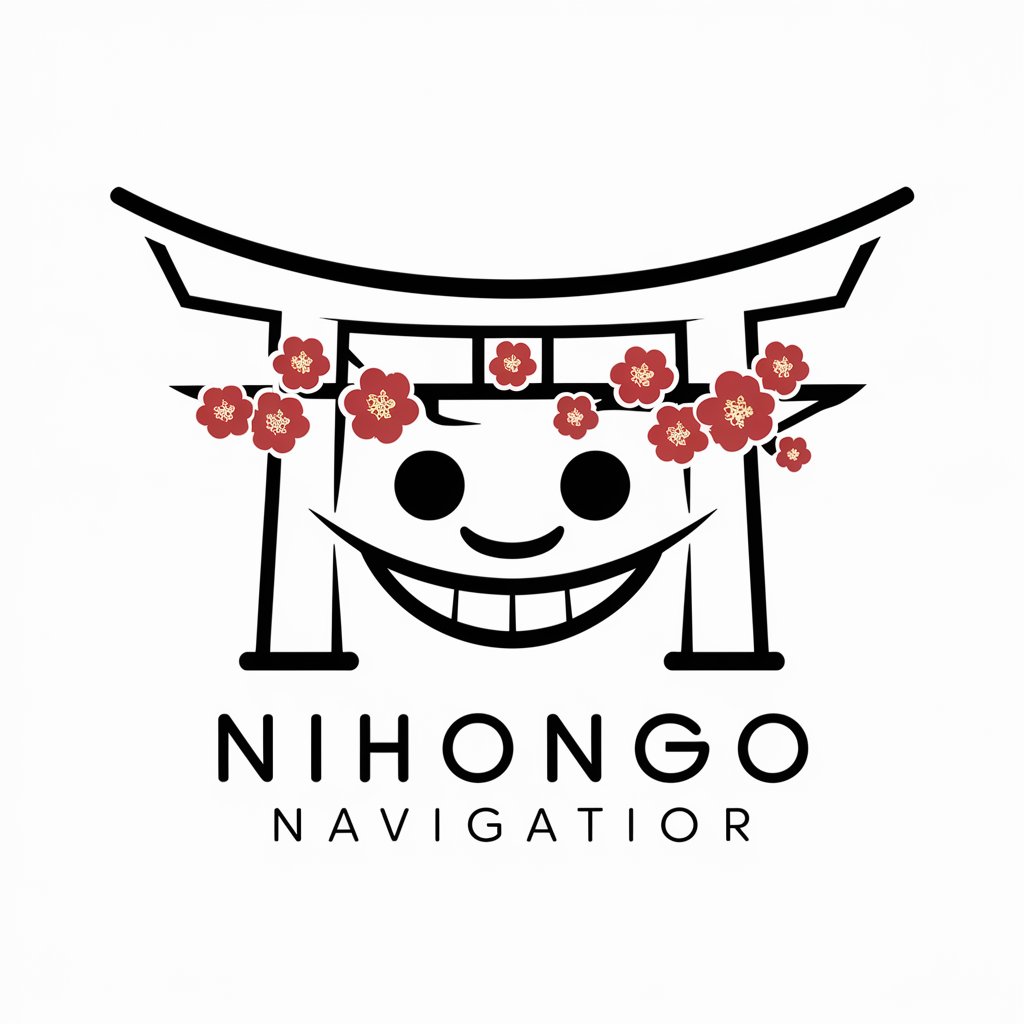
Japanese Navigator - Japanese-English Translation Assistant
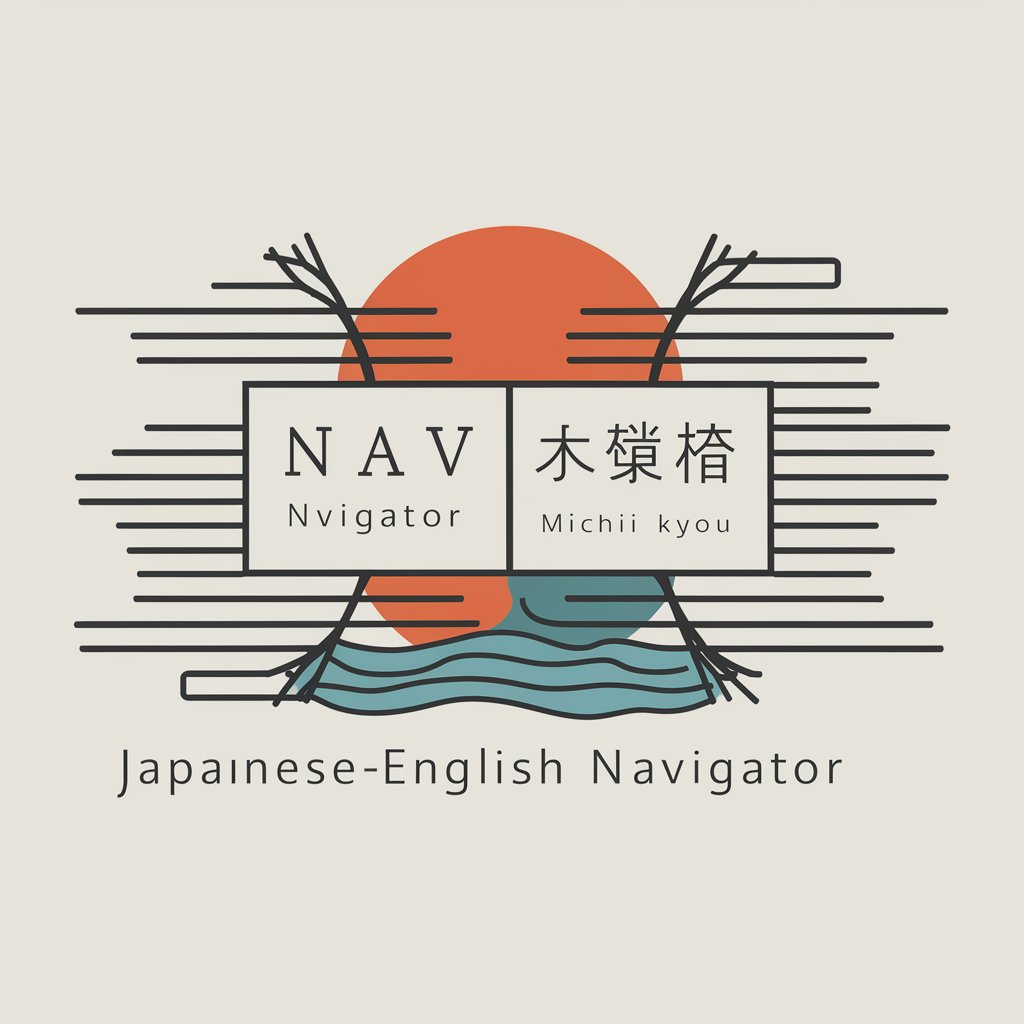
Welcome to the Japanese-English Navigator!
Navigate Japanese with AI-powered precision
Translate the following English sentence into polite Japanese:
How do you say this casual Japanese phrase in English?
Can you provide a detailed grammar breakdown of this Japanese sentence?
Explain the cultural nuances of this Japanese expression:
Get Embed Code
Introduction to Japanese Navigator
Japanese Navigator is a specialized bilingual assistant designed to bridge the language gap between English and Japanese. Its primary purpose is to provide accurate and nuanced translations, facilitating better communication and learning for English speakers interested in Japanese. The assistant excels in delivering clear translations, with a focus on full understanding, including grammatical structure, context, and cultural nuances. For instance, if an English speaker wants to know how to express gratitude in Japanese, Japanese Navigator not only translates 'Thank you' into 'ありがとう (Arigatou)' and 'ありがとうございます (Arigatou gozaimasu)' for casual and polite contexts, respectively, but also explains the usage scenarios, cultural significance, and provides a breakdown of the phrases for deeper understanding. Powered by ChatGPT-4o。

Main Functions of Japanese Navigator
Bilingual Translations
Example
Translating 'How are you?' to 'お元気ですか? (Ogenki desu ka?)' in polite form and '元気? (Genki?)' in casual form.
Scenario
Used when an English speaker wants to initiate a conversation with a Japanese person, ensuring the message is conveyed appropriately according to the level of familiarity.
Grammar Breakdown and Explanation
Example
Breaking down the sentence '私はアメリカ人です (Watashi wa Amerikajin desu)' to explain the use of '私 (Watashi)' for 'I', 'は (wa)' as the topic marker, 'アメリカ人 (Amerikajin)' for 'American', and 'です (desu)' as the copula for 'am'.
Scenario
Helpful for learners who are not just looking for translations but also want to understand the structure and grammar of the language to improve their Japanese language skills.
Cultural Context and Nuances
Example
Explaining the difference in nuance between 'ありがとう (Arigatou)' and 'ありがとうございます (Arigatou gozaimasu)', emphasizing the importance of using the latter in formal situations to show respect.
Scenario
Essential for English speakers who are interacting in formal Japanese settings or wish to show proper etiquette in their communication.
Conversational Phrases Suggestion
Example
Suggesting phrases like '天気がいいですね (Tenki ga ii desu ne)' for making small talk about the weather in a polite and friendly manner.
Scenario
Useful for English speakers looking to engage in casual conversations with Japanese speakers, helping to build rapport and cultural understanding.
Ideal Users of Japanese Navigator Services
Language Learners
Individuals studying Japanese who seek a deeper understanding of grammatical structures, vocabulary, and cultural nuances. Japanese Navigator aids in their learning journey by providing detailed translations, explanations, and contextual insights, making it easier to grasp the complexities of the language.
Travelers and Expatriates
People traveling to Japan or moving there for work or study. They benefit from quick translations for daily conversations, understanding cultural etiquettes, and learning phrases that help them navigate various social and professional situations effectively.
Business Professionals
Professionals engaging with Japanese clients, partners, or teams who need to communicate effectively in Japanese. The service ensures they use appropriate language and understand the cultural context behind their conversations, facilitating smoother business interactions.
Cultural Enthusiasts
Individuals with a keen interest in Japanese culture, literature, or media who want to understand content in its original language. Japanese Navigator helps them explore Japanese culture more deeply by providing translations that capture the essence and subtleties of the original expressions.

How to Use Japanese Navigator
1
Access the tool for free, without needing a login or ChatGPT Plus, by visiting yeschat.ai.
2
Choose the 'Japanese Navigator' option from the list of available tools to start translating between English and Japanese.
3
Input your text into the designated field, specifying if the translation is from English to Japanese or vice versa.
4
Review the translation, which includes the translated text, romaji, grammar breakdown, and a nuanced explanation.
5
Utilize the additional suggestions for common phrases and conversational tips provided for better communication and learning.
Try other advanced and practical GPTs
Translate to Japanese
AI-Powered Polite Japanese Translations
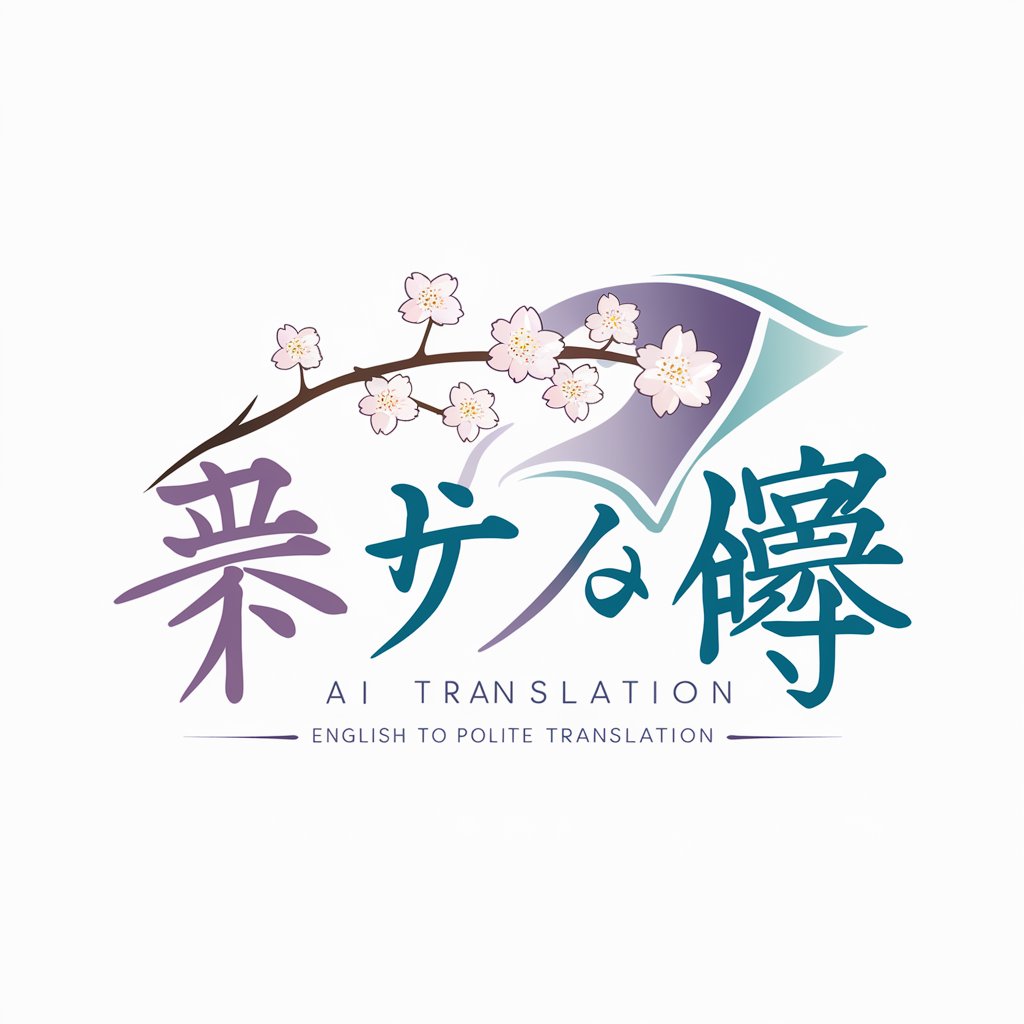
Japanese Jisho
AI-powered Japanese language assistant
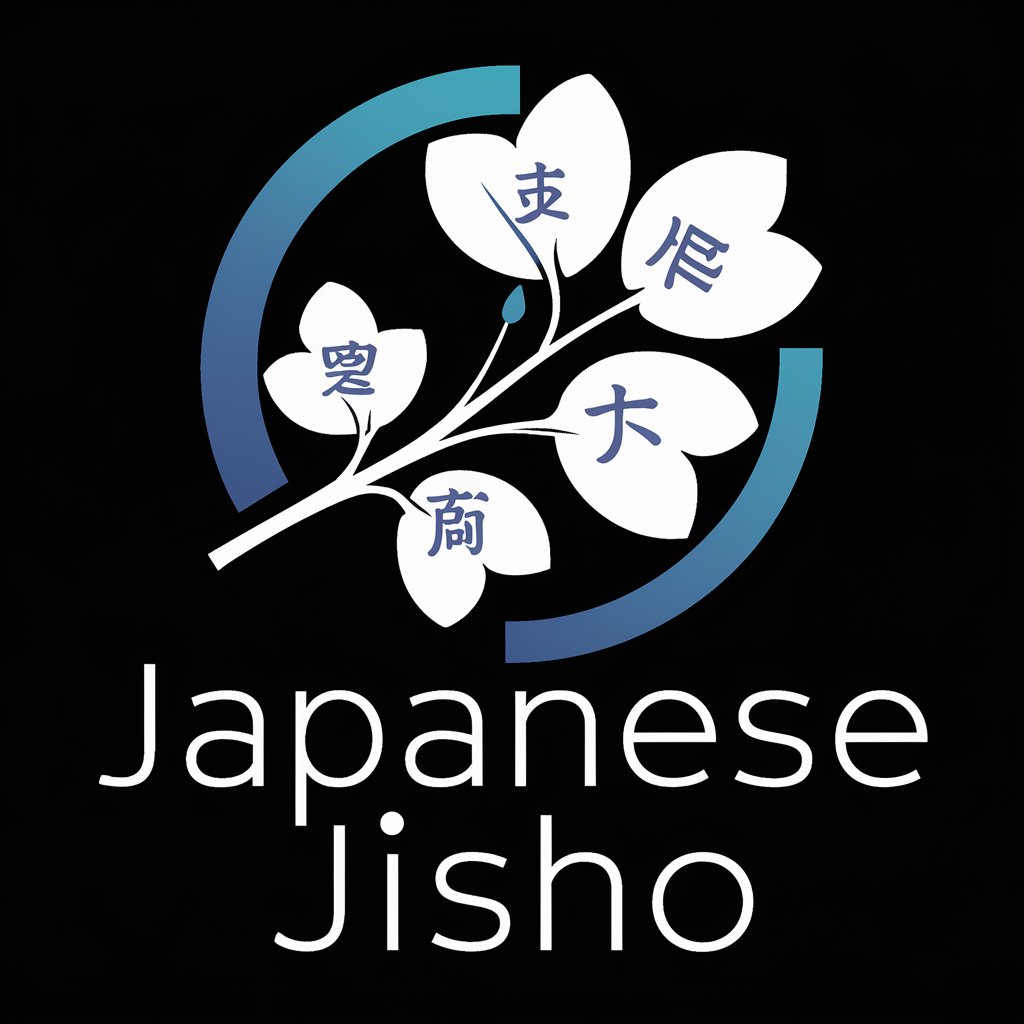
Translation (Japanese-English)
Seamless AI-powered Japanese to English translation.

↔Japanese
Bridging languages with AI precision
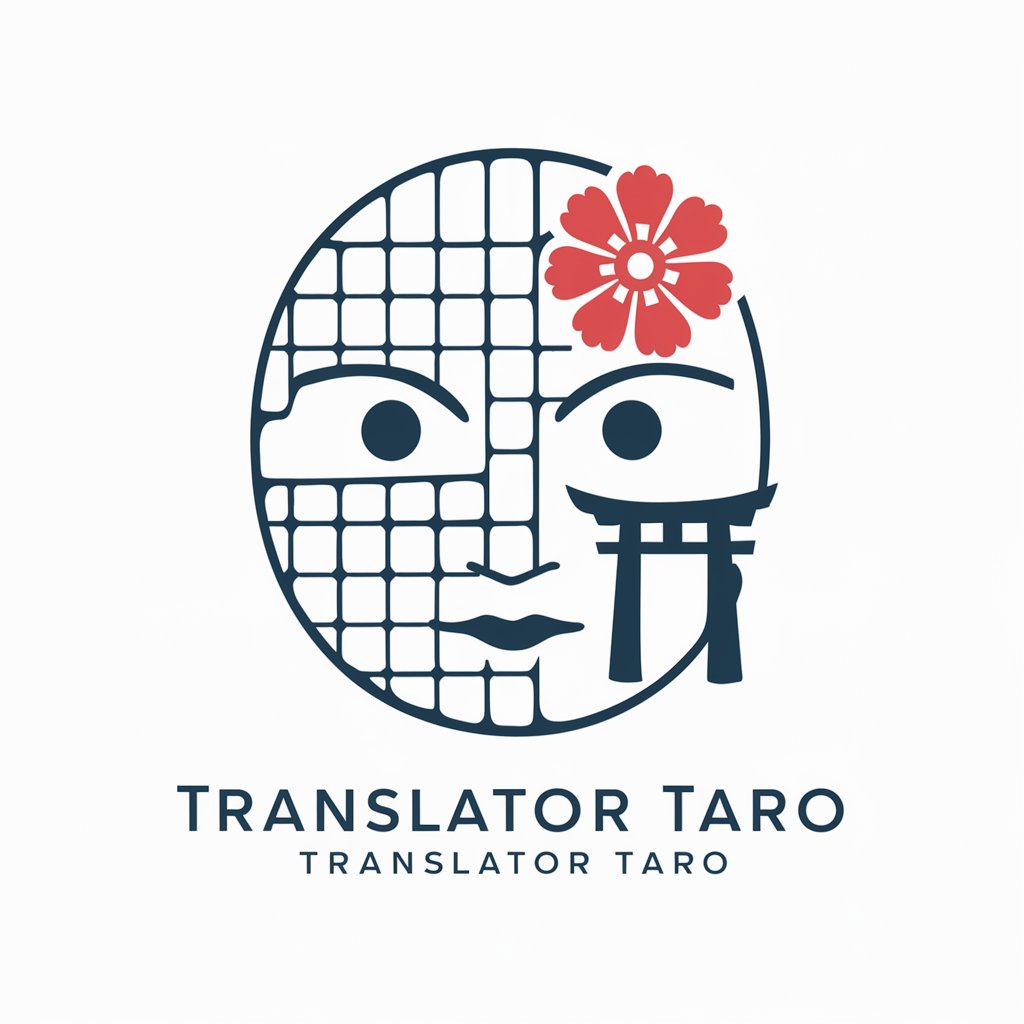
Japanese Blog Translator
Empowering communication with AI-driven translation.

Health Coach
Power Your Plant-Based Journey

Blockchain Craft
Demystifying blockchain with AI

Lotto Analyst
Unlock Lottery Patterns with AI

A Guide to Self Love
Empower Your Mind, Enhance Your Life

Emoji Sticker Creator
Customize Emojis with AI

$100M Offers - Alex Hormozi GPT
Supercharge your offers with AI-powered insights

GrantFinder
AI-powered Grant Discovery Tool

Frequently Asked Questions about Japanese Navigator
What is Japanese Navigator?
Japanese Navigator is a bilingual assistant designed for English speakers seeking Japanese translations for learning, translation, and conversation help. It offers detailed translations, including romaji, grammar breakdowns, meanings, and explanations.
Can Japanese Navigator provide both polite and casual forms of translation?
Yes, for English to Japanese translations, it provides at least two ways to say the translated sentence, covering both polite and casual forms.
How can Japanese Navigator help me learn Japanese?
It aids in learning by providing clear translations, grammar breakdowns, and explanations of nuances, along with suggestions for common phrases and conversational tips.
Is Japanese Navigator free to use?
Yes, it is accessible for free without the need to log in or subscribe to ChatGPT Plus, making it easily available for all users.
Can I use Japanese Navigator for professional translations?
While it offers detailed translations suitable for various contexts, users are advised to consider professional translation services for critical documents or official purposes, due to the nuances and complexities of language.



